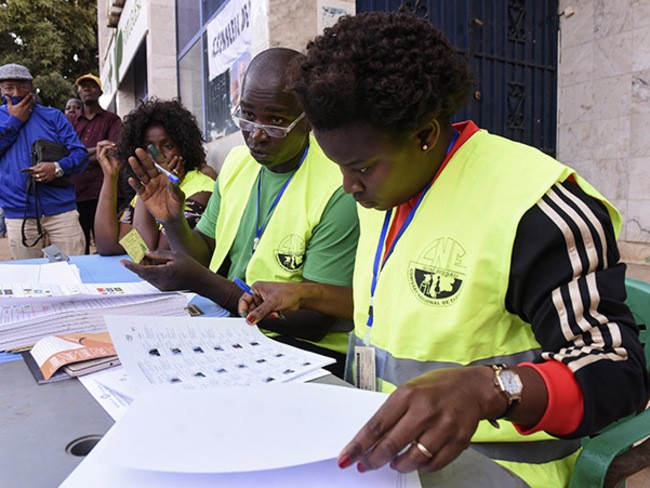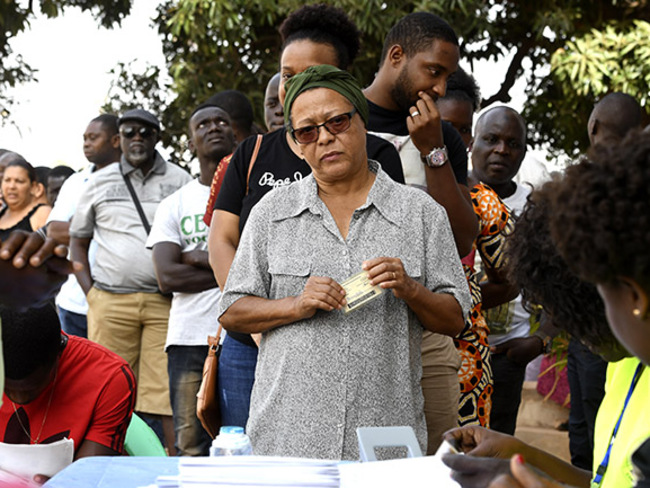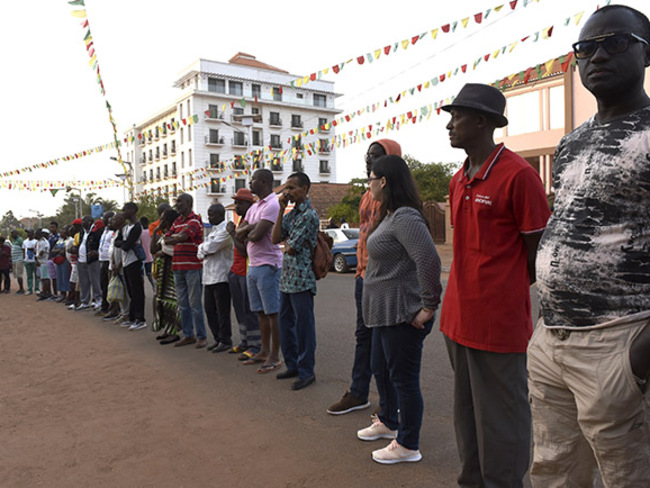Guinea-Bissau votes in hope of ending long leadership deadlock
Mar 10, 2019
The onetime Marxist ruling party PAIGC, which has run the poor West African country of some two million for most of the 45 years since winning independence from Portugal, is fielding candidates along with 20 opposition parties.

ELECTIONS
Guinea-Bissau - Voters in Guinea-Bissau went to the polls Sunday to elect a new parliament in the hope of ending a protracted leadership deadlock in a country that has become renowned for drug trafficking and instability.
 Electoral agents scrutinise documents at a polling station in Bissau on March 10, 2019, during the legislative elections in Guinea Bissau. (Photo by AFP)
Electoral agents scrutinise documents at a polling station in Bissau on March 10, 2019, during the legislative elections in Guinea Bissau. (Photo by AFP)
"I came to vote because I want the development of my country. I hope that the day passes off calmly," said Victor Pereira, 42.
 uinea Bissau's voters queue to cast their ballots at a polling station in Bissau on March 10, 2019, during the legislative elections in Guinea Bissau. (Photo by AFP)
uinea Bissau's voters queue to cast their ballots at a polling station in Bissau on March 10, 2019, during the legislative elections in Guinea Bissau. (Photo by AFP)
The onetime Marxist ruling party PAIGC, which has run the poor West African country of some two million for most of the 45 years since winning independence from Portugal, is fielding candidates along with 20 opposition parties.
 Voters queue as they wait to cast their ballots at a polling station in Bissau on March 10, 2019, during the legislative elections in Guinea Bissau. (Photo by AFP)
Voters queue as they wait to cast their ballots at a polling station in Bissau on March 10, 2019, during the legislative elections in Guinea Bissau. (Photo by AFP)
Among them are the main opposition Party of Social Renewal and the Movement for Democratic Change (Madem-G15), made up of dissidents from the African Party for the Independence of Guinea and Cape Verde (PAIGC).
The latest crisis in the notoriously volatile country arose in August 2015 when President Jose Mario Vaz, elected a year earlier, sacked his prime minister, Domingos Simoes Pereira who was head of the PAIGC, after a falling out.
At the time, the parallel economy came to play a preponderant role, fuelled by drug trafficking.
Vaz appointed a series of prime ministers, but none garnered sufficient support to achieve a parliamentary majority.
Finally in April 2018, the regional Economic Community of West African States (ECOWAS) mediated an agreement leading to the designation of a consensus prime minister, Aristide Gomes, and the resumption of work by the 102-seat parliament.
Gomes was given the caretaker task of preparing for parliamentary polls, in which 36 percent of candidates must be women for the first time.
Initially set for November 18, the polls were postponed to March 10 mainly for technical reasons.
